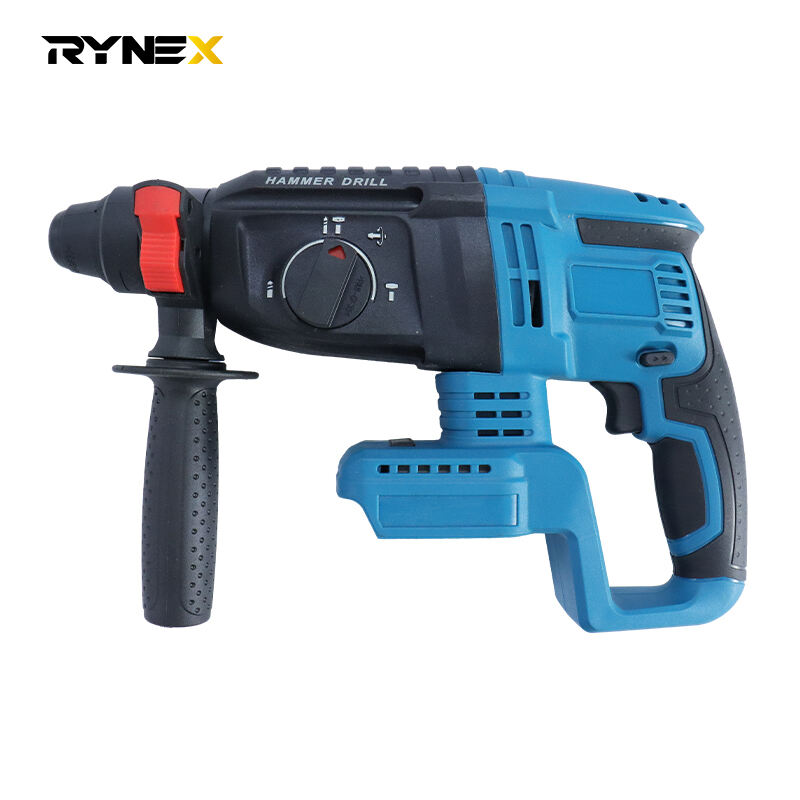Introduction
A rotary hammer drill serves as a powerful tool that does both the typical functions of hammers and drills, which can benefit users who need to perform masonry work. But as with any tool, it can give problems occasionally. When this occurs, it's important to quickly pinpoint and resolve the issue in order to continue being safe as well as sustain efficiently. Discussed below are a few of the basic remedy steps you can follow to troubleshoot your rotary hammer that is not working as it used to be.
Common Issues and Symptoms
Before we jump into the troubleshooting steps, it is important to know what kind of issues that can take place with a rotary hammer drill. These symptoms can range from a lack of power or no drilling action to overheating and excessive noise, loss of torque or available speed (how many rpm the motor is spinning at) to various vibration issues -- violent chattering in worse case scenarios -- as well jamming/binding.
Safety Precautions
Troubleshooting almost any power tool must begin with safety. Before You Start, Ensure that:
Switch off the power supply to prevent an electric shock.
Wear proper personal protective equipment (PPEs) such as safety glasses and gloves.
Drill on a plane and still surface so the drill does not suddenly move off.
Troubleshooting Steps
Now that you have everything ready, it's time to learn how to fix a rotary hammer.
A. Power Supply
Inspect the power cord and their plug for any signs of damage. It will have to be replaced if the cord or plug are frayed, cracked Check the power outlet with another device to see if it is working. If you are using a cordless drill, check that the battery is charged and working.
B. Switches and Triggers
Make sure to turn the power switch over "on" mode. Examine the trigger mechanism, ensure it is not damaged or blocked in any way preventing it to act as intended.
C. Bit and Chuck
Check the bit for breakage or abnormal wear. Just one meringue drill bit can ruin the effectiveness of your whole sewing machine. Make sure the bit is firmly secured in the chuck This can result in poor performance, where a the bit may not be gripped properly by worn or damage on the chuck.
D. Hammer Mechanism
It works fine from power, so I check under the hood for blockages in hammer mechanism (dust and debris). Check for any obstructions, and examine the piston/hammer for wear or damage. The next day, you can clean these parts or replace them if they are causing a problem.
E. Motor and Bearings
Be on the lookout for any abnormal noises that could be a symptom of an issue with the motor. Insufficient lubrication can lead to overheating and noise followed When installing the drill, replace any worn or damaged bearings to ensure that it can still be used.
F. Cooling System
Inspect the cooling fan to make sure it works This would prevent over heating of the drill Clean the dust or debris. Change the fan if it is not running properly
G. Grease and Lubrication
Verify if there is proper grease in the gear box and give movables parts some grease Finally, a word of caution; if you over-lubricate the bit it tends to warm up too much which will ruin your drill and then we are both sad.
H. Electrical Components
Check for damage and/or a loose connection in the wires. Test the motor for continuity using a multimeter If thermostat motor isn’t functioning, replacement may be necessary.
I. Maintenance and Care
If you keep this rotatory hammer drill clean and at that point, it will last longer for years. Regularly c lean the drill after every use, store it correctly when not using, follow an inspection and maintenance schedule to prevent future problems.
Advanced Troubleshooting
After these steps, your drill should be working perfectly fine if it is not functioning good then you need to focus on the following:
Referencing your user manual for model specific procedures
Technical support from the manufacturer.
Conclusion
While it can be intimidating to troubleshoot a rotary hammer drill, with methodical treatment and some attention paid to detail you are generally able to fix the majority of problems. Maintaining and caring for your drill is everything, as it can save you a major headache further down the line. In doubt, always refer to a professional.

